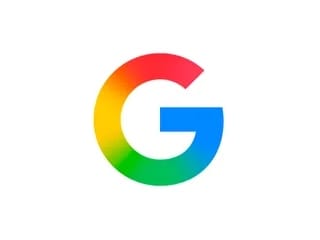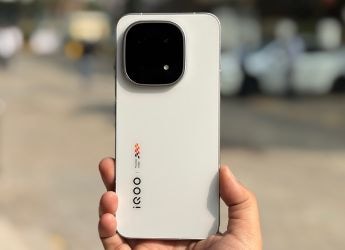- Home
- Social networking
- Social networking News
- Australia Wakes Up to Empty News Feed on Facebook
Australia Wakes Up to Empty News Feed on Facebook
Facebook's dramatic move represents a split from Google after they joined together for years to campaign against the laws.
Australian publishers can publish news on Facebook, but links can't be viewed by Australian audiences
Australians woke to empty news feeds on their Facebook pages on Thursday after the social media giant blocked all media content in a surprise and dramatic escalation of a dispute with the government over paying for content.
The move was swiftly criticised by news producers, politicians, and human rights advocates, particularly as it became clear that official health pages, emergency safety warnings and welfare networks had all been scrubbed from the site along with news.
"Facebook's actions to unfriend Australia today, cutting off essential information services on health and emergency services, were as arrogant as they were disappointing," Prime Minister Scott Morrison wrote on his own Facebook page, using the vernacular for cutting ties with another person on the site.
"These actions will only confirm the concerns that an increasing number of countries are expressing about the behaviour of Big Tech companies who think they are bigger than governments and that the rules should not apply to them."
Facebook's dramatic move represents a split from Alphabet-owned Google after they joined together for years to campaign against the laws. Both had threatened to cancel services in Australia, but Google has instead sealed preemptive deals with several outlets in recent days.
Rupert Murdoch's News Corp was the latest to announce a deal in which it will receive "significant payments" from Google in return for providing content for the search engine's News Showcase account.
Google declined to comment on the Facebook decision on Thursday.
The Australian law would require Facebook and Google to reach commercial deals with news outlets whose links drive traffic to their platforms, or be subjected to forced arbitration to agree a price.
Facebook said in its statement that the law, which is expected to be passed by parliament within days, "fundamentally misunderstands" the relationship between itself and publishers and it faced a stark choice of complying or banning news content.
The tech giant has said news makes up just 4 percent of what people view on its website, but for Australians Facebook's role in news delivery is growing. A 2020 University of Canberra study found 21 percent of Australians use social media as their primary news source, up 3 percent from the previous year, while 39 percent of the population uses Facebook to receive news. The same study said 29 percent of Australian news video content is consumed on Facebook.
Blank pages
The changes made by Facebook wiped clean pages operated by news outlets and removed posts by individual users sharing Australian news, three days before the country begins a nationwide vaccination program to slow the spread of COVID-19.
Lisa Davies, editor of daily The Sydney Morning Herald newspaper, owned by Nine Entertainment, tweeted: "Facebook has exponentially increased the opportunity for misinformation, dangerous radicalism and conspiracy theories to abound on its platform."
Well, that's a tantrum. Facebook has exponentially increased the opportunity for misinformation, dangerous radicalism and conspiracy theories to abound on its platform. Even more important to subscribe to a news outlet you respect. I suggest @smh obvs pic.twitter.com/6gwopjZJt0
— Lisa Davies (@lisazdavies) February 17, 2021
The Facebook pages of Nine and News Corp, which together dominate the country's metro newspaper market, and the government-funded Australian Broadcasting Corp, which acts as a central information source during natural disasters, were blank.
Also affected were several major state government accounts, including those providing advice on the coronavirus pandemic and bushfire threats at the height of the summer season, and scores of charity and non-governmental organisation accounts.
"Demand for food relief has never been higher than during this pandemic, and one of our primary comms tools to help connect people with #foodrelief info & advice is now unavailable," tweeted Brianna Casey, chief executive of hunger relief charity Foodbank.
"Hours matter when you have nothing to eat. SORT THIS OUT!"
This is UNACCEPTABLE. Demand for food relief has never been higher than during this pandemic, and one of our primary comms tools to help connect people with #foodrelief info & advice is now unavailable. Hours matter when you have nothing to eat. SORT THIS OUT! #facebooknewsban. pic.twitter.com/xYVnrKQQeF
— Brianna Casey (@briannacasey1) February 18, 2021
A News Corp spokesman did not respond to a request for comment. An advertisement on News Corp's main Australian news site said, "You don't need Facebook to get your news", alongside a link to the company's smartphone app.
Some pages restored
By mid-afternoon, many government-backed Facebook pages were restored but several charity pages and all media sites remained dark, including those of international outlets like the New York Times, the BBC, News Corp's Wall Street Journal, and Reuters.
A Facebook representative in Australia did not reply to a request for comment on the situation. A later Facebook statement said the ban should not affect government pages but "as the law does not provide clear guidance on the definition of news content, we have taken a broad definition".
Facebook's own page was down for several hours in Australia before being restored.
"This is an alarming and dangerous turn of events," said Human Rights Watch in a statement. "Cutting off access to vital information to an entire country in the dead of the night is unconscionable."
© Thomson Reuters 2021
Is Samsung Galaxy S21+ the perfect flagship for most Indians? We discussed this on Orbital, our weekly technology podcast, which you can subscribe to via Apple Podcasts, Google Podcasts, or RSS, download the episode, or just hit the play button below.
Catch the latest from the Consumer Electronics Show on Gadgets 360, at our CES 2026 hub.
Related Stories
- Samsung Galaxy Unpacked 2025
- ChatGPT
- Redmi Note 14 Pro+
- iPhone 16
- Apple Vision Pro
- Oneplus 12
- OnePlus Nord CE 3 Lite 5G
- iPhone 13
- Xiaomi 14 Pro
- Oppo Find N3
- Tecno Spark Go (2023)
- Realme V30
- Best Phones Under 25000
- Samsung Galaxy S24 Series
- Cryptocurrency
- iQoo 12
- Samsung Galaxy S24 Ultra
- Giottus
- Samsung Galaxy Z Flip 5
- Apple 'Scary Fast'
- Housefull 5
- GoPro Hero 12 Black Review
- Invincible Season 2
- JioGlass
- HD Ready TV
- Laptop Under 50000
- Smartwatch Under 10000
- Latest Mobile Phones
- Compare Phones
- Vivo Y500i
- OnePlus Turbo 6V
- OnePlus Turbo 6
- Itel Zeno 20 Max
- OPPO Reno 15 Pro Mini 5G
- Poco M8 Pro 5G
- Motorola Signature
- Vivo Y50e 5G
- Lenovo Yoga Slim 7x (2025)
- Lenovo Yoga Slim 7a
- Realme Pad 3
- OPPO Pad Air 5
- Xiaomi Watch 5
- Huawei Watch 10th Anniversary Edition
- Acerpure Nitro Z Series 100-inch QLED TV
- Samsung 43 Inch LED Ultra HD (4K) Smart TV (UA43UE81AFULXL)
- Asus ROG Ally
- Nintendo Switch Lite
- Haier 1.6 Ton 5 Star Inverter Split AC (HSU19G-MZAID5BN-INV)
- Haier 1.6 Ton 5 Star Inverter Split AC (HSU19G-MZAIM5BN-INV)
















